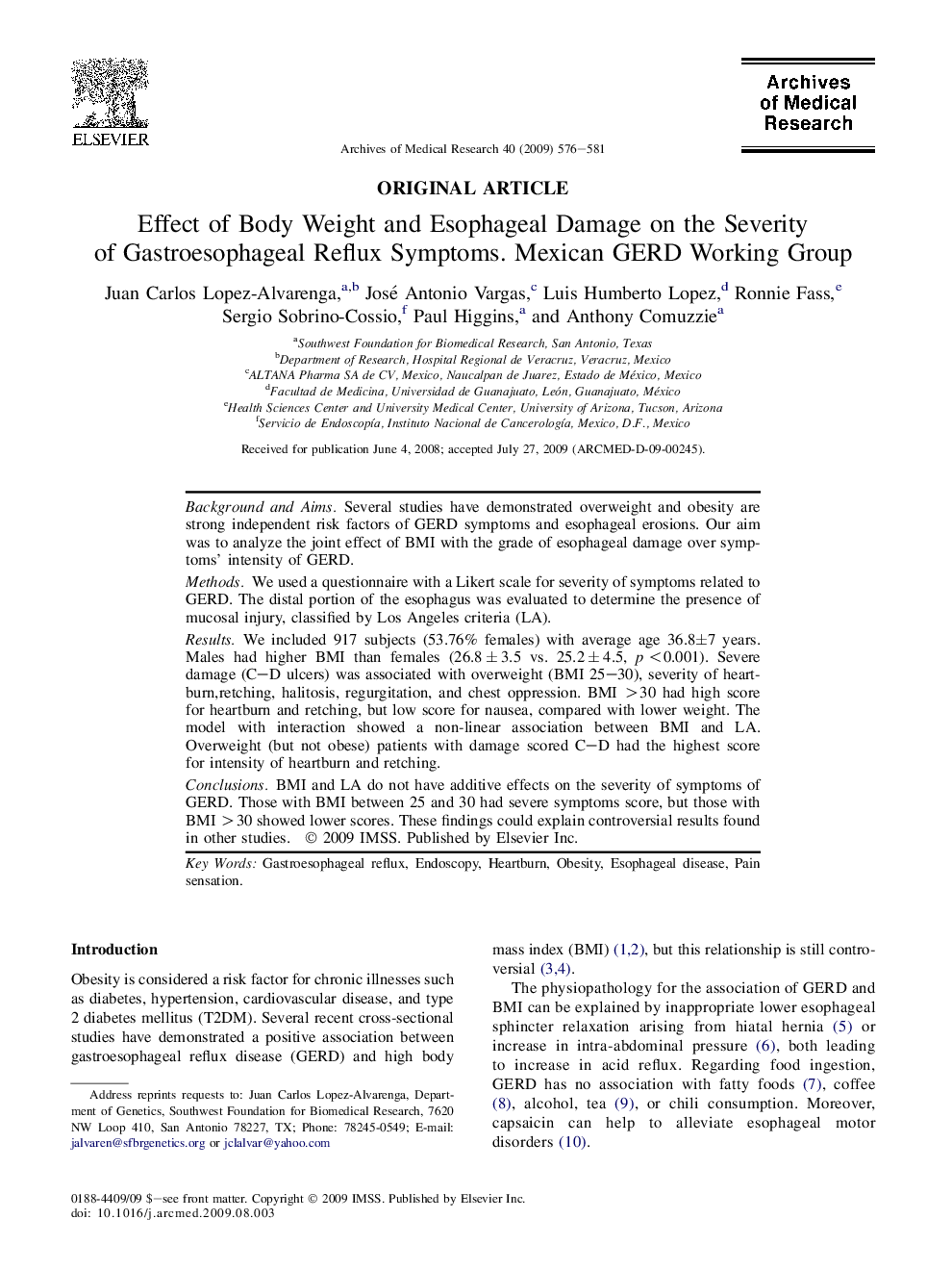| کد مقاله | کد نشریه | سال انتشار | مقاله انگلیسی | نسخه تمام متن |
|---|---|---|---|---|
| 3446930 | 1595508 | 2009 | 6 صفحه PDF | دانلود رایگان |

Background and AimsSeveral studies have demonstrated overweight and obesity are strong independent risk factors of GERD symptoms and esophageal erosions. Our aim was to analyze the joint effect of BMI with the grade of esophageal damage over symptoms' intensity of GERD.MethodsWe used a questionnaire with a Likert scale for severity of symptoms related to GERD. The distal portion of the esophagus was evaluated to determine the presence of mucosal injury, classified by Los Angeles criteria (LA).ResultsWe included 917 subjects (53.76% females) with average age 36.8±7 years. Males had higher BMI than females (26.8 ± 3.5 vs. 25.2 ± 4.5, p <0.001). Severe damage (C–D ulcers) was associated with overweight (BMI 25–30), severity of heartburn,retching, halitosis, regurgitation, and chest oppression. BMI >30 had high score for heartburn and retching, but low score for nausea, compared with lower weight. The model with interaction showed a non-linear association between BMI and LA. Overweight (but not obese) patients with damage scored C–D had the highest score for intensity of heartburn and retching.ConclusionsBMI and LA do not have additive effects on the severity of symptoms of GERD. Those with BMI between 25 and 30 had severe symptoms score, but those with BMI >30 showed lower scores. These findings could explain controversial results found in other studies.
Journal: Archives of Medical Research - Volume 40, Issue 7, October 2009, Pages 576–581